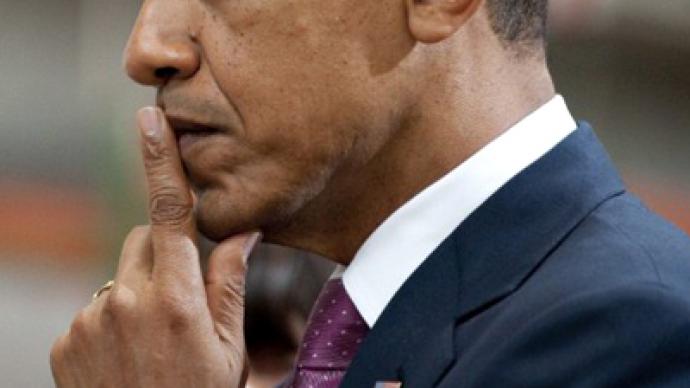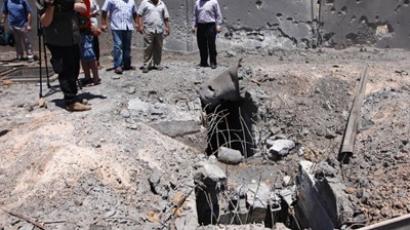Congress slaps Obama on the wrist over Libyan war

A majority of the US House of Representatives voted against a motion to cut funding for US military involvement in Libya. This came directly after the very same lawmakers refused to grant President Barack Obama approval to carry on the campaign.
The House of Representatives voted to deprive Obama of the authority to continue the US military campaign in Libya, a symbolic move intended mostly to reprimand the commander-in-chief for his policies. The motion carried 295 votes to 123 against.However, the move of the House of Representatives seemed more like a message of rebuke sent to Obama rather than an actual war-stopper, because when it came to voting on cutting off funds for the war, a majority voted “no.”Earlier this month, on June 3, the House voted 268 to 145 to rebuke Obama for failing to provide a "compelling rationale" for the Libyan mission and for deploying US military forces without congressional approval.Some analysts say it is a way for Congress to show their frustration over the White House’s refusal to come to the lawmakers to seek authorization for the military actions in Libya. Under the US Constitution, only Congress can declare war. The Obama administration does not define the ongoing hostilities in Libya as war.Earlier this month they had a chance to send an even stronger message, as the House debated a resolution from Congressman Dennis Kucinich, who called for an immediate end to the US involvement in Libya. The majority voted “no” to that proposal.As Capitol Hill observers say, “When it comes to waging wars, the US Congress has generally been supportive.”
Phyllis Bennis, director of the Institute for Policy Studies, explained that at least three forces have joined together to send a message to President Barack Obama, one that reflects the US public’s opposition to the war in Libya. “There were Republican forces, who will vote against President Obama for anything,” she said. “There were people from both parties whose concern was over the legality. The law, passed in 1973 at the height of the Vietnam War, requires the president to get congressional approval when he sends troops or military resources abroad within 60 days.”“And, of course, there is a core level of opposition from both parties,” she added. “It is going to be interesting now to see if there is any serious response from the White House.”
Voice of Russia analyst and radio host Ricardo Young suggested that despite the criticism Obama faces from Congress, he will not stop the US’s involvement in the Libyan conflict. “We get into the situation of the United States sort of having one foot in this conflict and another foot out,” he said. “I think that President Barack Obama is depending on that kind of thinking, that kind of logic, to justify the presence of American involvement in these NATO strikes.”
Michael Ratner, president of the Center for Constitutional Rights, says that by getting into the Libyan conflict, President Barack Obama is risking his political career.“I think Obama looks like a real fool, it looks like he made a real mistake to not go to Congress to get the authority,” he said. “But the reason you go to Congress is because you want the American people, through their representatives, to debate whether this is a good idea, a bad idea, to put a limitations on it. He did not do that and I think he is paying a cost.”














